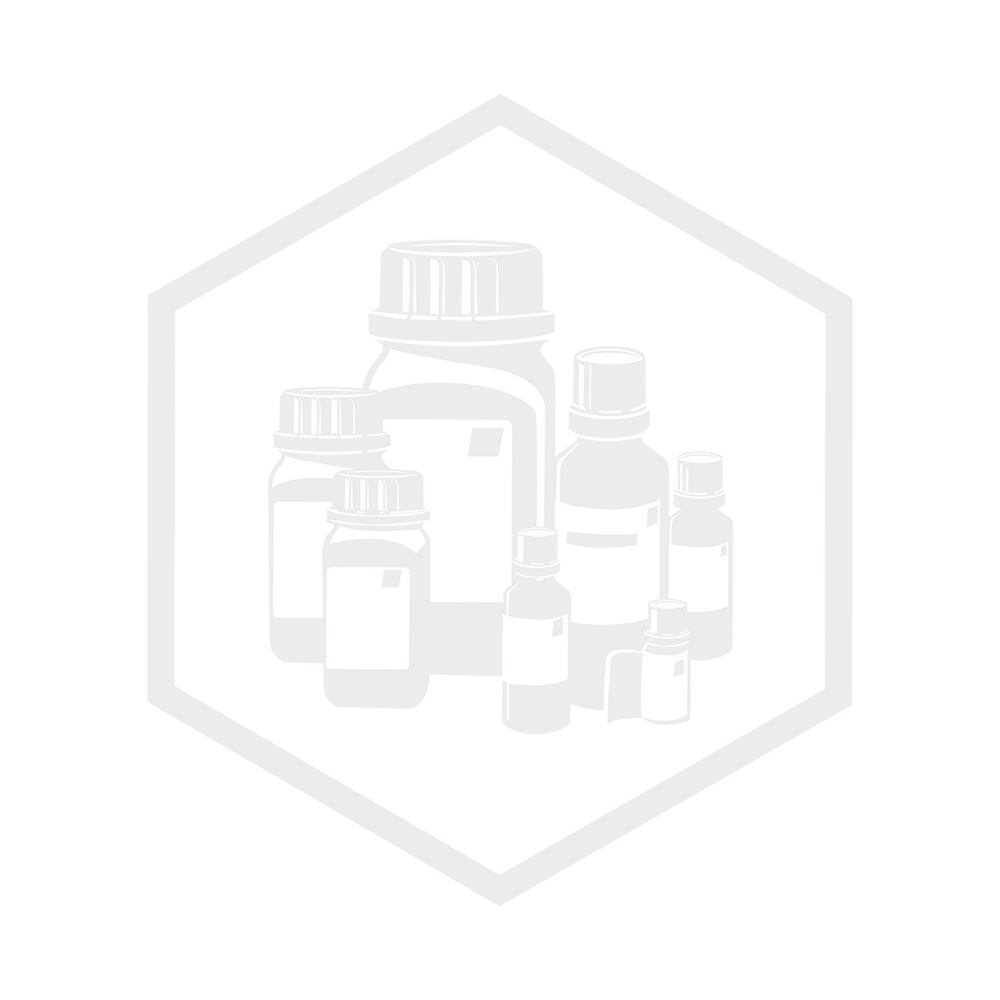product.details.print
Glycogen, 1 g, glass
CAS No. 9005-79-2
EG-Nr. 232-683-8
Stock solution: 5 mg/ml in distilled, sterile water
Working concentration: 50 µg/ml
Long-chain polysaccharide made of glucose. Most frequently used in biochemistry and as “carrier” during precipitation of nucleic acids. Recovery of precipitated DNA is significantly enhanced by addition of 50 µg/ml glycogen; even starting from solutions with very low DNA concentrations, efficient precipitation can be performed.
Contains no nucleic acid and doesn't hinder enzymatic downstream applications.
Glycogen contains a central protein and should not be applied if DNA is to be used in protein binding-assays following precipitation. In these cases we recommend to use our glycogen-free coprecipitants.
32,15 €/VE
Excl. btw | 1 g Per VE
Bestelnr. HP51.1
Productdetails
Glycogen lyophilized, made of oysters
Glycogen type 2.
Long-chain polysaccharide made of glucose. Most frequently used in biochemistry and as “carrier” during precipitation of nucleic acids. Recovery of precipitated DNA is significantly enhanced by addition of 50 µg/ml glycogen; even starting from solutions with very low DNA concentrations, efficient precipitation can be performed.
Contains no nucleic acid and doesn't hinder enzymatic downstream applications.
Glycogen contains a central protein and should not be applied if DNA is to be used in protein binding-assays following precipitation. In these cases we recommend to use our glycogen-free coprecipitants.
- Tussentotaal: 0.00
| Bestelnr. | VE | Verp. | Prijs | Hoeveelheid | |
|---|---|---|---|---|---|
| HP51.1 | 1 g | glass |
32,15 € |
|
|
| HP51.2 | 5 g | plastic |
127,95 € |
|
|
| HP51.3 | 10 g | plastic |
220,40 € |
|
|
| HP51.4 | 25 g | plastic |
478,40 € |
|
|
|
Op voorraad
Beschikbaar
In bestelling
Niet meer verkrijgbaar
Leveringsdatum onbekend
|
|||||
- Tussentotaal: 0.00
Downloads / MSDS
Algemene informatie
Carbohydrates or Saccharides make up 50 % of the dry biomass of the earth and are therefore the most frequent class of biomolecules. Besides at least two hydroxy groups, they also have an aldehyde or a ketone group and can be subdivided according to the number of monomeric components in mono-, di-, oligo and polysaccharides.
Whereas mono-, di- and oligosaccharides are soluble in water, taste sweet and are therefore called as sugar, polysaccharides are hardly, or not at all, soluble in water and have a neutral taste.
Carbohydrates, together with fats and proteins make up a large percentage of nutrition. In addition to their central role as an energy source, they are also an important structural component especially in plants (e.g. Cellulose). Ribose, a monosaccaride with five carbons (C5H10O5) is an essential element of coenzymes (such as ATP, FAD and NAD) and a structural component of RNA. Desoxyribose (a ribose derivative) is a structural component of DNA.
Oligo- and polysaccharides
Oligosaccharides consist of three to nine monosaccharide units.
Polysaccharides are macromolecular substances that consist of ≥10 monosaccharide units. A distinction is made between homoglycans, which are made up of only one type of monosaccharides (e.g. starch) and heteroglycans, which consist of at least two different monomeric components (e.g. xanthan).
Analysecertificaten
Type analysis
| Appearance | bright powder |
| Origin | oysters |
| Solubility (0,25 %, 1 M NaCl) | complies |
| Loss on drying | ≤15 % |
| Specific rotation [α]20D | +170° to 200° |

